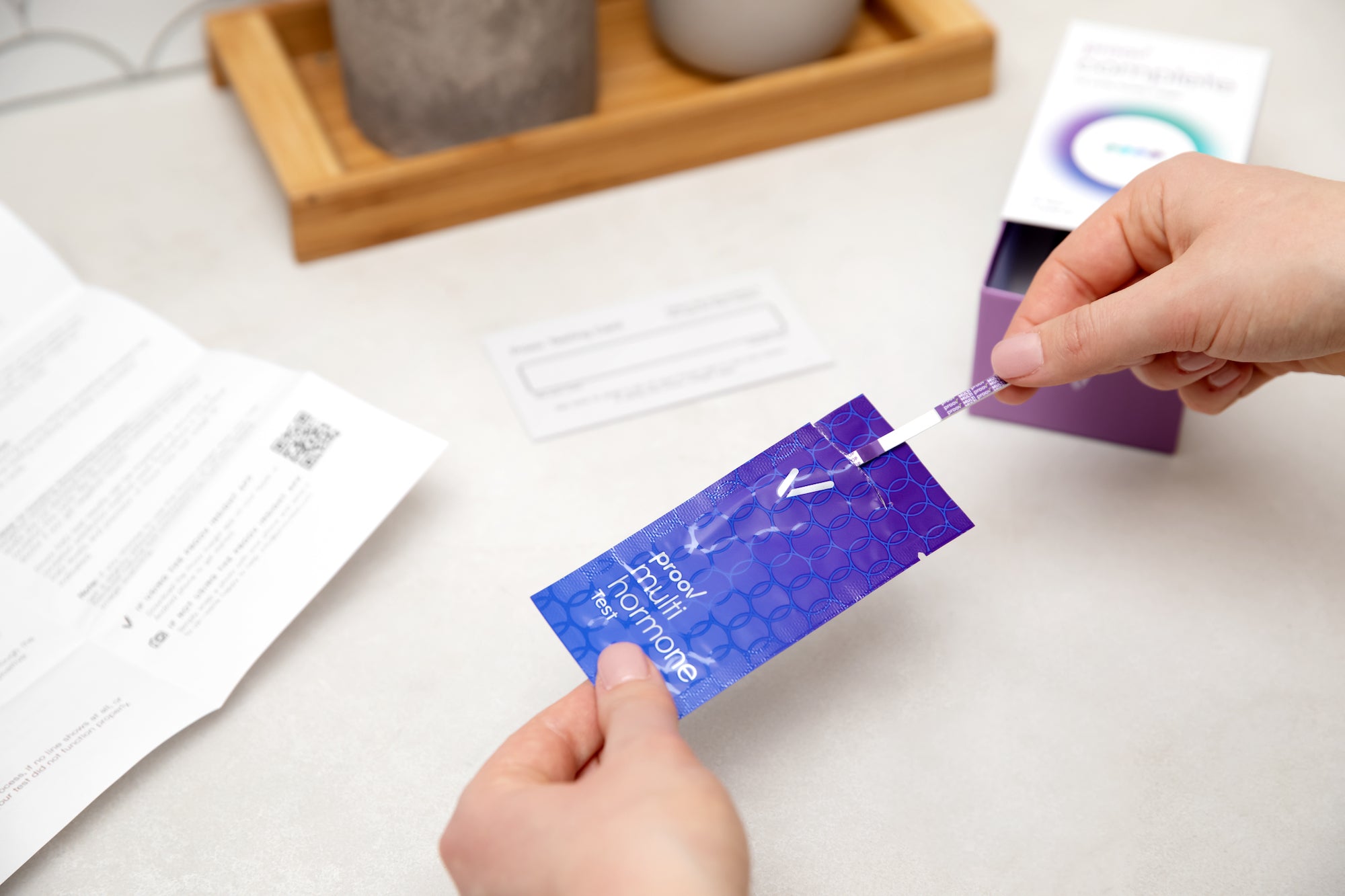Fertility Testing: More than Just Ovulation Tests

Studies show that 85% of couples will conceive in 1 year if they have frequent intercourse. But some couples will need a little extra help when it comes to getting pregnant, and others are just excited to do all they can to speed the process along.
Luckily, the world of fertility testing offers plenty of tools to help you reach your goals faster. Regardless of how long you’ve been trying, there’s probably something interesting and useful you can learn through fertility testing.
It used to be that most fertility testing happened in a doctor’s office. While your doctor is a great resource, today it’s easy to get tons of valuable information independently by testing at home. At-home fertility testing options are convenient and non-invasive, and often cost less than the price of a doctor’s visit.
Plus, testing at home provides you with useful data you can share with your doctor down the road, if you determine that an office visit is needed. Let’s get started!

So what is fertility testing?
If you’re researching this topic, you probably already noticed that the language out there can be pretty confusing. It’s common for different doctors and companies to have their own definitions of the term “fertility test,” and to use that term interchangeably with lots of other names that refer to specific fertility hormones or biological processes (“ovulation test,” we’re looking at you). That’s why diving just a bit deeper with your understanding of cycle hormones and their role in fertility can be so helpful.
At Proov, we offer a comprehensive range of fertility and ovulation testing products that allow you to understand your hormones with inexpensive, non-invasive tests. All you need is your urine sample (or his sperm, if your partner is male). We know our bodies are complex, but understanding them doesn’t have to be! And we’re here to help.
Below, we’ve identified 4 key cycle hormones that influence fertility, what each can tell you, and how to test them easily at home.

What should I do with my fertility testing information?
We believe the more information you have about your fertility hormones, the more empowered you can be to get pregnant faster. Our tests work with the Proov Insight app, which helps you understand your results and provides action steps to reach your goals — it’s like a fertility coach in your pocket!
If your testing results indicate hormone levels that are out of the expected range, there’s no need to panic. The fact is every body is different and there can be a lot of variation in what “normal” looks like. It’s common for it to take some time to get pregnant, and we recommend testing for multiple cycles to gather the information you need to be set up for success.
And if there is an issue, often the fix is simple. Basics like healthy lifestyle choices and natural supplements can be a good place to start!
Additionally, we always recommend bringing your at-home testing data to your doctor. Together, you can develop the best plan for you based on your unique results, situation, and medical history. A doctor can also run additional tests and prescribe medications if needed.
What are some other fertility testing options?
At Proov, we’re focused on the 4 key cycle hormones — but there’s more to the world of fertility testing. Here are a few more testing options you can consider:
Sperm testing: It takes two to tango! Get his swimmers checked so you know that they have the best possible chance at fertilizing the egg.
Anti-mullerian hormone (AMH) test: AMH is another marker of ovarian reserve. Your doctor can perform this test.
Thyroid-stimulating hormone (TSH): TSH stimulates the thyroid gland to make reproductive hormones. Imbalances in TSH can cause imbalances in reproductive hormones.
Testosterone: While women should only have low levels of testosterone, some experience elevated levels (such as those with PCOS), which can interfere with fertility.
Dehydroepiandrosterone (DHEA): DHEA is a hormone that helps produce other hormones. Elevated DHEA can be a sign of PCOS or cause increased levels of testosterone.
Prolactin: Prolactin increases during breastfeeding. Elevated prolactin can inhibit ovulation.
Vitamin D: Studies show that high levels of vitamin D are associated with higher pregnancy rates.
FAQs
Is fertility testing the same as ovulation testing?
Not quite — “fertility testing” can refer to a whole range of tests that provide helpful insight when you’re trying to conceive. “Ovulation testing” usually refers only to LH tests. Accurate ovulation (LH) tests help you time intercourse by indicating when ovulation is likely to take place. While LH tests are extremely useful, they only reveal one piece of the fertility puzzle.
When is the right time to begin fertility testing?
Taking advantage of convenient at-home fertility hormone tests is very common, even for couples who’ve only just started trying. But only you can know if and when fertility testing should be part of your personal journey to pregnancy. At Proov, we believe it’s never too early to begin testing your main cycle hormones to get more in tune with your hormone patterns. Having a clear picture of what’s going on with your cycle can help with timing intercourse, understanding ovulation quality, understanding how many eggs you have on hand, and more.
What hormones are part of fertility testing?
The 4 key hormones we recommend testing are follicle stimulating hormone (FSH), estrogen (or its urine marker, E1G), luteinizing hormone (LH), and progesterone (or its urine marker, PdG).
How do ovulation tests work?
Ovulation test strips measure luteinizing hormone (LH) levels in urine to identify your 2 most fertile days each cycle, so you know exactly when to “try.” Accurate ovulation tests are the most common fertility hormone test on the market.
Do ovulation tests confirm ovulation?
No, ovulation tests do not confirm ovulation. If you’d like to confirm ovulation, you’ll need a PdG test instead.
What are other fertility tests I can consider?
If you’re looking for more information or have done the main fertility tests and still aren’t conceiving after 12 months, you may want to consider additional testing. Here are some options to discuss with your doctor:
Sperm testing
Anti-mullerian hormone (AMH) test
Thyroid-stimulating hormone (TSH)
Testosterone
Dehydroepiandrosterone (DHEA)
Prolactin
Vitamin D
this is s test




